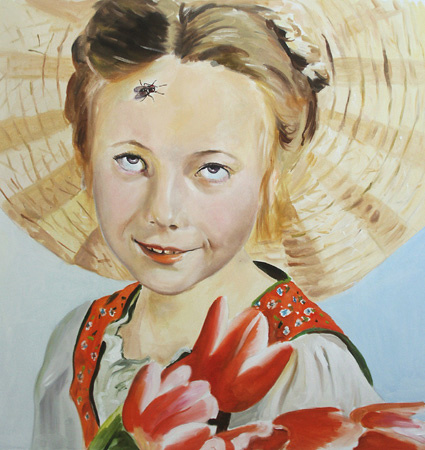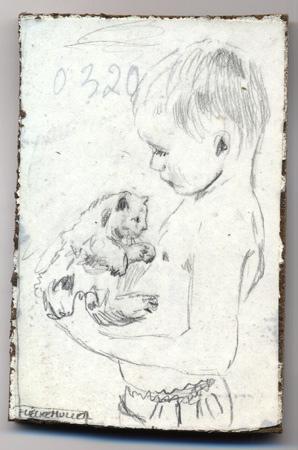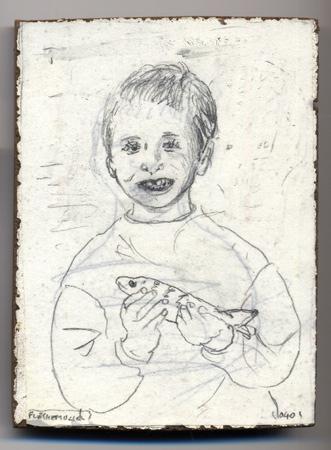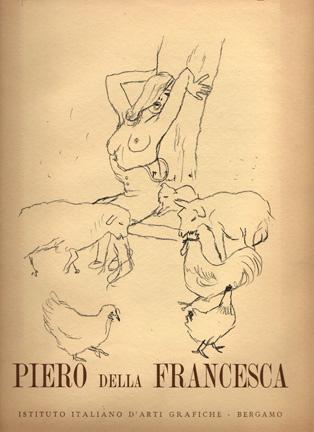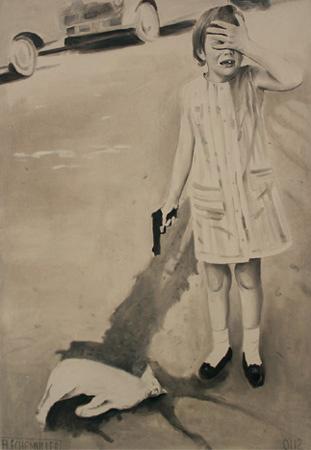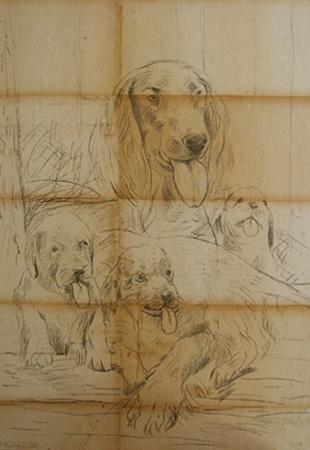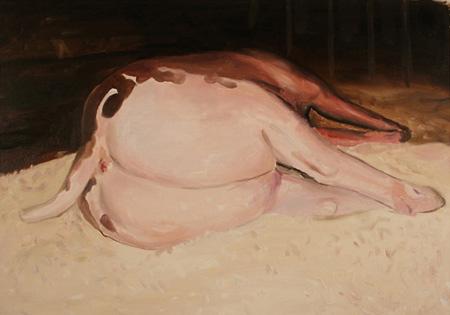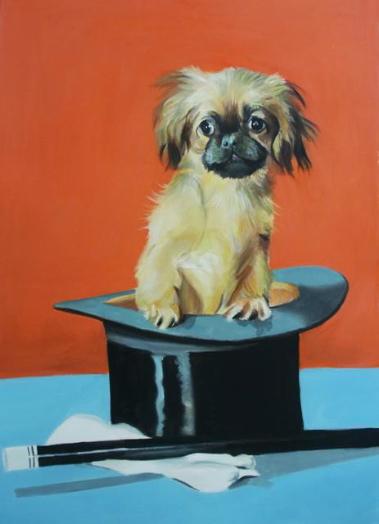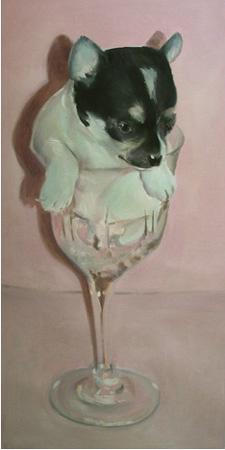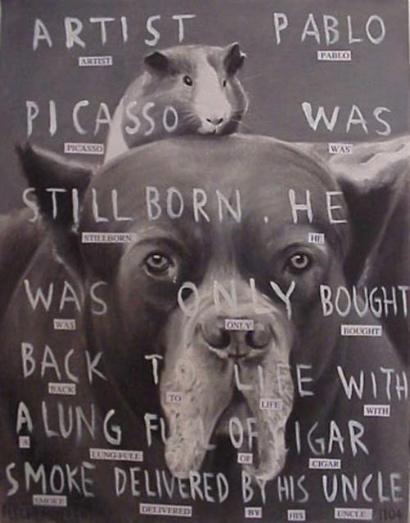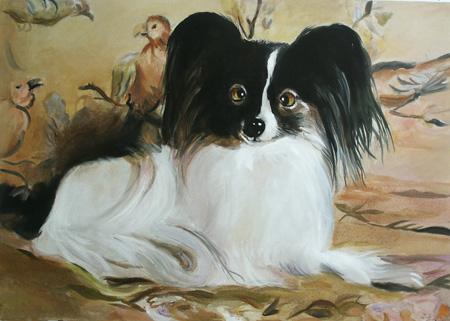New paintings
"Q & A" WITH JACQUES FLECHEMULLER
Q. The title of show is "Gone Fishing;" what does it mean?
A. It's a metaphor I love; entering my studio, is like entering my favorite river, I cast my line and wait for the surprise, insist on the surprise, and when it comes, I'm always awestruck by the "catch;" whether in my studio or the river.
Q. Which artists have inspired you?
A. Open any book on art history to any page and you have the beginning of my response. Even the artists that I don't like, inspire me...I can work against them; they are as important for me as the artists that I like. What courage they have, all artists: Laurel and Hardy, the Marx Brothers, Chaplin, they're artists too, they taught me to break everything breakable... for the pure pleasure of discovery and the pleasure of pure anarchy. For me Jacques Tati is as important as Vermeer.
Q. You have often painted little girls with a black eye or cross-eyed dogs etc. It seems that you take pleasure in knocking subjects that one holds dear.
A. Ah yes, this mania started when I was a kid in Paris. With my greasy crayon, I spent wonderful moments in the Metro stations putting mustaches and big noses on advertising posters, and I haven't stopped... It's still as efficient and joyful...In my studio I'm still a kid. I think that humor is an essential function of art, of life—don't you agree?
Q. You seem fascinated with what some might call "corny" images: like cute puppies and kittens; I might suggest that you wallow in that kind of imagery with enormous pleasure.
A. That's from my childhood as well, but it's not that straightforward. Every year, in France, the Postal Department distributed calendars which had photos of cute animals or idyllic pastoral scenes: the image of a "perfect world," no clouds, no problems, no war; a kind of paradise offered by the Post Office. Of course, we all know that there is no such thing as a cloudless sky or a perfect world; it's an innocent dichotomy, the kind of gentle subversion that I love. Every single home in France had one of these calendars pinned up on the wall; it was often the only "art" in the house. At the time I looked down on this kind of art, I considered it "bad taste." Today, I see things differently and, the truth is that I love these subjects. I may seem to amuse myself by perverting them, but I love them in the first degree, for what they say and what they don't say. I love the poetic naïveté, I love the freshness—we need that from time to time. Even if the volcanoes are rumbling underground, the sky is blue everywhere and the puppies and kittens are always "cute."
